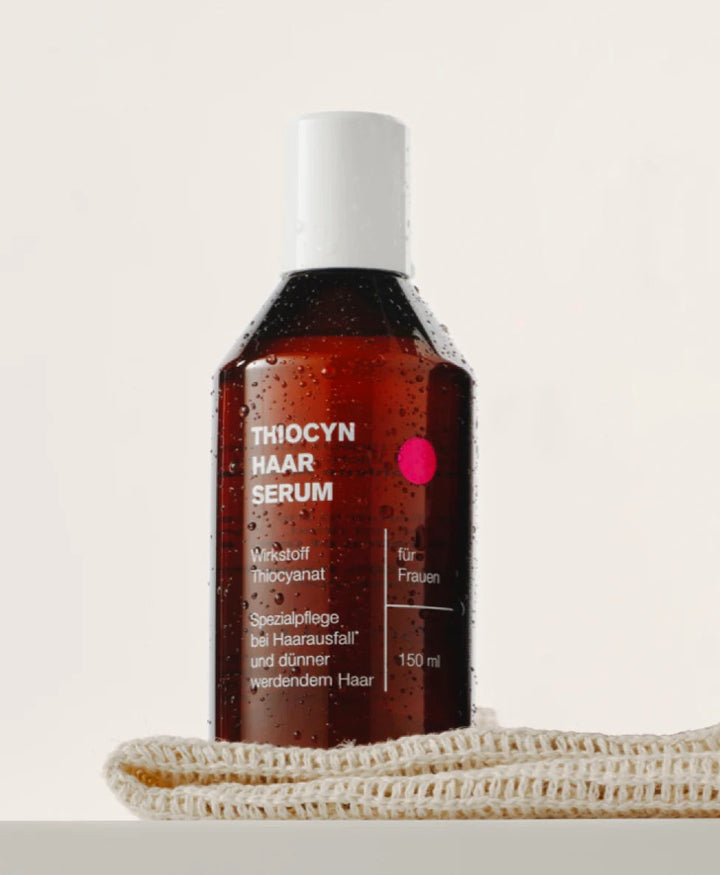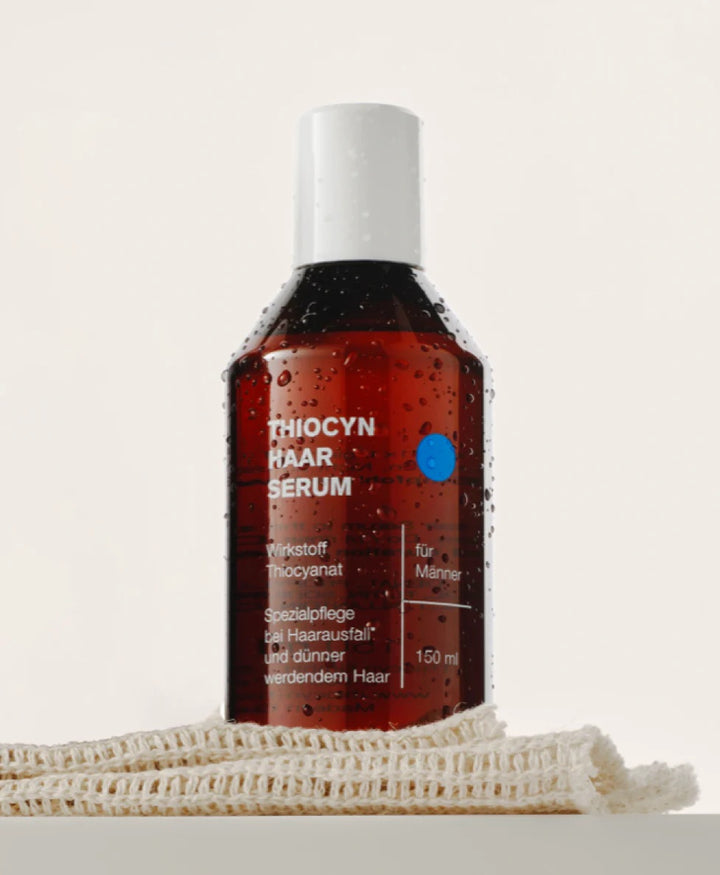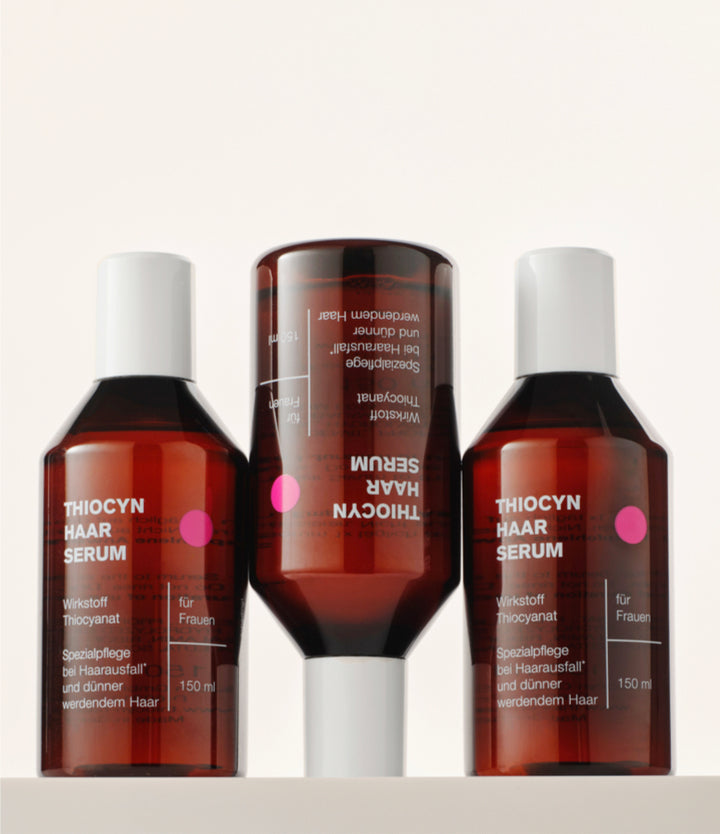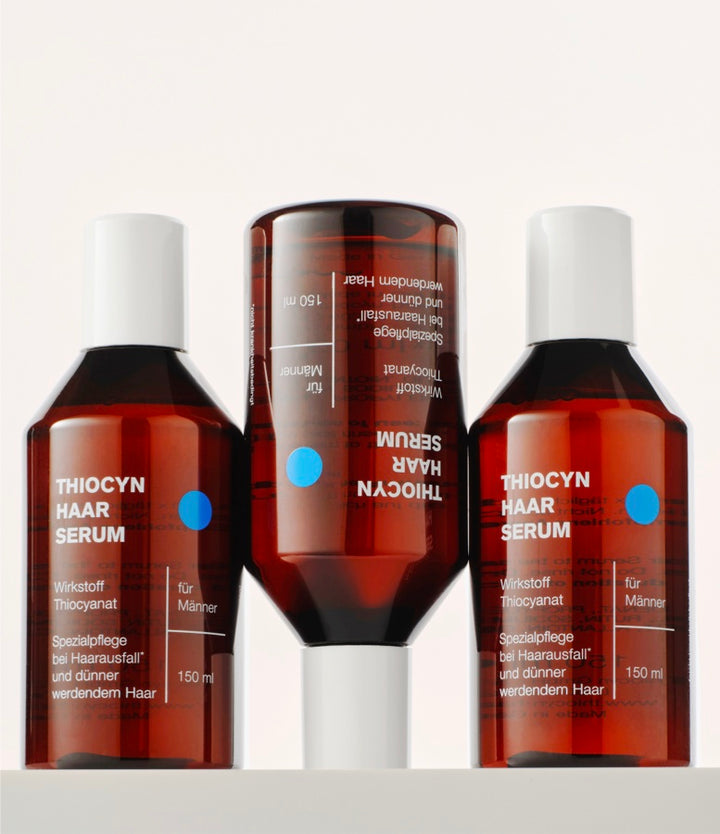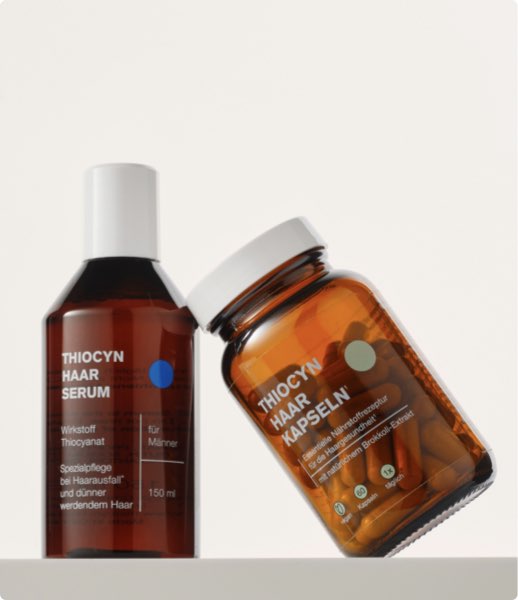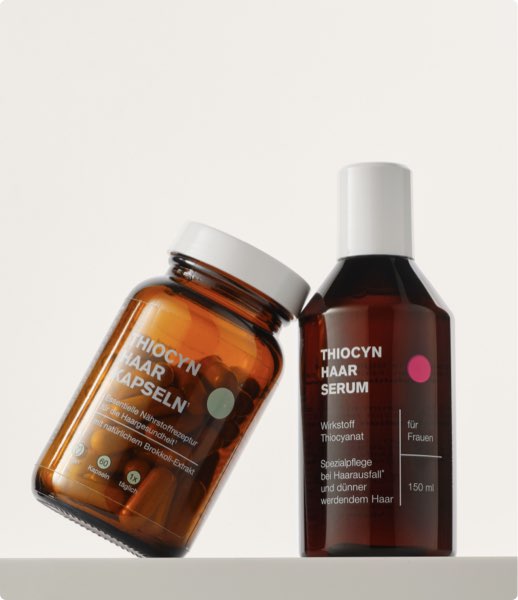| 04. July 2023
Menopause - hormone therapy?
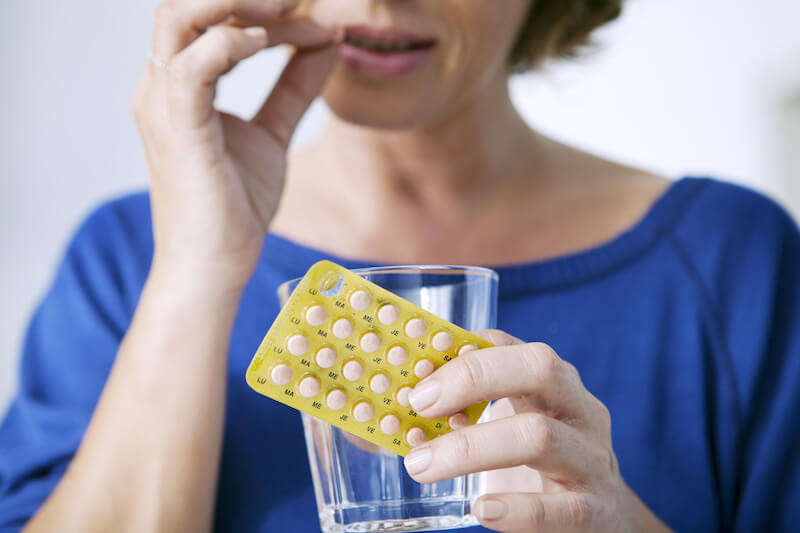
- To alleviate menopausal symptoms, women often resort to hormone therapy.
- Despite many years of research, there are no valid results that confirm the positive effect of hormone therapies on hair growth.
- The Thiocyn hair serum is a promising way to counteract hair loss*.
Menopause is characterized by a continuous decline in estrogen production in the body, especially after menopause Almost one in two women experience menopausal symptoms. Hormone therapy is intended to alleviate symptoms and improve women's quality of life. Despite decades of research into the effects of hormone therapy, there is no valid data on whether the symptom of hair loss can be treated with hormone therapy.
Compensate for deficiency with hormones
A good third of women over 50 are prescribed hormone preparations to alleviate menopausal symptoms such as hot flashes, sweating, or dizziness. The body's hormonal metabolism is so complex that the hormones used must be continually reassessed during treatment. Are the symptoms improving? Are the women satisfied with the treatment and the results? Are there any interactions or side effects? In practice, the following principle has become established in recent years: as few hormones as possible, as many as necessary.
Scientific findings
The basis of hormone therapy at the onset of menopause is blood, saliva or urine tests, thanks to which the level of certain sex hormones can be determined. Hormone deficiencies are identified by comparing them with reference values. This raises the question: Does it even make sense to treat certain menopausal symptoms with hormones? S3 guideline on hormone therapy in the peri- and postmenopause The German Society of Gynecology and Obstetrics (DGGG) aims to assist physicians and women in making informed decisions. It assesses the benefits and risks and clarifies whether hormones are effective for certain menopausal symptoms.
When do hormones work?
Three examples:
1. Hot flashes can be most effectively treated with estrogen; the therapy is administered orally.
2. In cases of vaginal atrophy, i.e. thinning of the genital tissue, systemic hormone therapy with tablets or local estrogen therapy in the form of suppositories or creams improves the symptoms.
3. Hormone therapy can be used for effective primary prevention of osteoporosis and its associated fractures. Following oral or transdermal application, fewer bone fractures occur in women at high fracture risk, according to the guideline.
When do hormones not work?
The guideline failed to identify a consistently positive effect of hormones on a wide range of symptoms. Three examples:
1. Quality of life. In women treated with hormones, both positive and negative effects on quality of life can be observed.
2. Urinary incontinence. Oral hormone therapy can increase the risk of developing urinary incontinence or worsen existing incontinence.
3. Hormone therapy has not been shown to slow down skin aging processes.
Can hormones stop excessive hair loss?
The DGGG guideline does not provide any information for women who are looking for ways to stop their excessive hair loss during menopause, possibly with hormone therapy.There is also no other study that has proven that excessive hair loss during menopause can generally be stopped and new hair growth stimulated with supplemental hormones.
A few years ago, doctors and their patients had reason to believe that many menopausal symptoms—including hair loss—could be successfully treated by prescribing birth control pills. This practice is gradually being abandoned due to potential side effects.
In August 2013, for example, the European Medicines Agency (EMA) decided to continue to approve birth control pills containing cyproterone acetate (CPA). Since there is apparently no proven benefit for androgenetic hair loss, products containing CPA are no longer approved for this purpose.
An attractive option: Thiocyn hair serum
The problem for women with increased hair loss during menopause: They have to hope that hormone therapy for their menopausal symptoms will also have a positive effect on hair growth – which is rather unlikely. On the other hand, women who "only" suffer from increased hair loss will not be prescribed hormone therapy. The natural, body's own molecule thiocyanate proves to be a very attractive option in this dilemma. The special care Thiocyn Hair Serum with its patented thiocyanate active formula is a way to stabilize the disturbed cell metabolism at the hair root and normalize the hair cycle* – without interfering with hormonally controlled metabolic processes. The result: less diffuse hair loss* and hair miniaturization, improved hair density – all with no known side effects.
Read by 23,000 people
Do it like 23,000 others and find out how you can improve your hair health - with great offers and discounts as well as helpful advice
